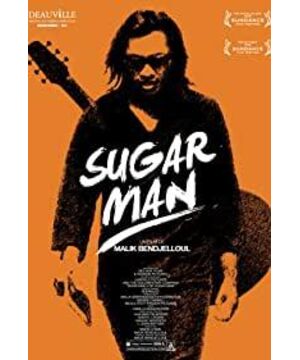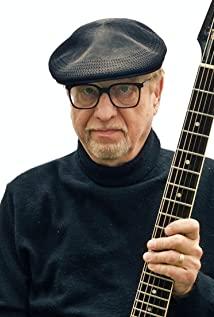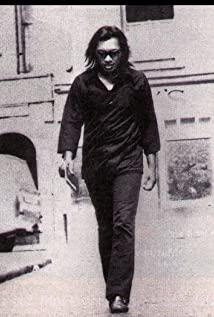Record store owner Stephen Sugarman Siegman drove from Cape Town, South Africa to Detroit, Michigan, four decades after the release of his favorite record, Cold Facts, to unravel a mysterious and sad story. puzzle. The record "Cold Facts" is very popular in South Africa, but people in South Africa don't know who sings - who Rodriguez is, his background, everything about him, almost nothing. Until now, it is only that he committed suicide and burned himself to death on stage and in front of the audience. This may be the most bizarre suicide in rock history. Location: Detroit, Michigan, USA Dennis Coffey: First met him in 1968. It was Mike Theodore who called me the other day, let's meet an artist called Rodriguez, who sang at a bar by the Detroit River. Smoky night, foggy bar… Mike Theodore: On a foggy night, the sound of fog horns by the river, the smoke filled the room, beer, peanut shells, and the sound of plucking strings. Seeing a man in the corner, with his back to the audience, sitting in the corner singing... Dennis Coffey: Maybe he was forcing the audience to listen to the lyrics with his back to the audience. That night we decided to make a record for him. In those days, the only song I've ever heard so good was probably Bob Dylan. The song "Crucify Your Heart" (1970) The camera swept from the bar where they first met, along the street to nostalgia for one bar after another, you can imagine what Rodriguez spent in these bars. Lonely time in self music. Dan DiMaggio (brewery bartender): He's like a bum in the city, and sometimes I see him on street corners. There are some burnt, desolate neighborhoods in Detroit that I see occasionally. This adds to his mystique. What he's doing, he's doing it. I heard he does some roofing, construction work. I didn't think he was much better than the homeless, he looked like he was going through various shelters. Dennis Coffey: It wasn't easy to survive in Detroit in the seventies, and it still isn't easy today. Recession, lots of abandoned houses, the city has real poverty. These streets are Rodriguez's natural habitat, and every time we meet to discuss work, he always sees us on the corner of the neighborhood where he lives. When Mike and I parked the car and stood on the corner, he suddenly appeared. We think of him as an urban poet who writes poetry and puts it into music. His vision of the streets of Detroit is absolutely gritty, his vision of the community, the people on the street, and the way he puts it in his song The way is very interesting. Mike Theodore: Recording at Terrassima Studios. When he opened his mouth to sing, those who listened immediately felt that this guy had talent. At that time, all the conditions for success were met, whether it was a big company, a big investment, or a big environment. Are there enough shows? Is he too political? Should the cover be green instead of orange? Should the violin be used instead of the oboe? what exactly is it? But ultimately, if you listen to his songs now. You will also not understand why he did not succeed, he is so good! Jerome Ferretti (bricklayer): I've only seen him perform once. There's a song on his album called "Little Sugar Man." I know that one. Buy some "sugar" at home. Song "Sugar Man" (1970) Location: Palm Springs, California, USA Let me show you some pictures, I took them in the UK with Rodriguez, and I still have them to this day. This is a photo of me as an actor. Me, Jimmy Dean, 1955. Steve Rowland, producer of Rodriguez's second album in 1971: I haven't seen these pictures in thirty-five years, and he's my most memorable artist. He's not just gifted, he's like a wise man, a prophet, he's much more than a musician. If he continues his musical career it could be a big hit. When I met him, Rodriguez was introduced, and this was Stephen Rowland, and he loved your albums. Rodriguez said to me, do you like Frozen Facts? I said I thought this album was amazing, I didn't expect it to be silent. So he played me his second album, which was still a demo tape at the time, and was going to be titled "From Reality." I said, God, it will definitely fire. Some are different, but very good, some are so sad, this one "Because I lost my job, two weeks before Christmas, I told God in the sewer bar that the Pope said it had nothing to do with him..." This one The song ("Because" 1971) made me sad because it was the last song we recorded and the last one Rodriguez recorded. Sadly, the album was released in 1971, and we expected the record to be a big hit, but it didn't. Then just two weeks before Christmas, Sussex Records fired him with the first line of the lyrics like a teaser. Sad to think about, this guy deserves recognition, but no one in America has even heard of him, no one is even interested in listening to his songs, how could this be, how could this be? not understand. Song "Because" (1971) Location: Record Store Owner Stephen Sugarman Siegman in Cape Town, South Africa: First How the album "Cold Reality" came to South Africa is still a mystery. I have heard a version of an American girl who came to South Africa to visit her boyfriend. With this album, they and their friends liked it, so They recorded themselves and went viral, very fast. i wonder musician William Moller: I was in high school when I heard this album, South Africa was very conservative at that time, it was the height of apartheid, there was no TV watching, everything was restricted, everything was censored, and he became a rebel idol. The weird thing is that everyone buys his records, everyone I know has his records. The song "I'm Thinking" is very popular, everyone is singing, the picture of him on the cover is wearing sunglasses, a bit like a hippie, but no one knows about him, he is very mysterious. Unlike other American artists, who can read reports and understand their situation, he has no information at all. Music journalist Craig Bartholomew-Strideham: The album fires, for South Africans, he sings about our lives. In the mid-1970s, you walked into a random, white liberal middle-class home with a record player and a bunch of pop records, and if you could find the Beatles' Abbey Road, you'd see Simon and Garffin Kerr's "Bridge over Rapids," and you'll see Rodriguez's "Cold Facts." For us this is one of the most famous albums of all time. The spirit of the album is to oppose the system. There is a song on the album called "Institutional Blues". We didn't even know the word anti-establishment until it emerged from his lyrics. You can rebel against the society you live in, you can be angry with the society you live in, and the society we live in at that time all means to prevent apartheid, to the end. This album has somehow almost liberated those of us who were oppressed. Any revolution needs hymns, and the album "Cold Facts" gives people permission to liberate the mind and change the way of thinking. Song "Institutional Blues" (1971) Craig Bartholomew-Stredham: It may seem odd that the South African record company didn't try to find Rodriguez, but in fact, back in the day at the height of apartheid, South Africa is sanctioned by various countries around the world. South African musicians are not allowed to perform abroad, and foreign artists are not allowed to perform in South Africa. South Africa is in a closed state. The whole world is condemning the atrocities of the apartheid government, we don't know that the government controls the news, South Africa has become the most unpopular country in the world, cultural boycotts, sports boycotts, we know it's wrong. But white South Africans can't do much either, because the government is very strict, largely under military control, and if you make anti-apartheid remarks publicly, you can get three years in prison. But at this time in South Africa, there was a band of musicians and songwriters. For them, hearing Rodriguez's songs was like hearing a voice saying, brothers, there is still a way out, there is a way out, you can write songs, sing songs, Performance. This is from inside the Afrikaans the earliest voices against apartheid. Cuth Combes, William Moller, and the late Johannes Cockrell were recognized icons of the white Afrikaans musical revolution, and Rodriguez was their mentor. Four Frames member William Moller: We call it the Four Frame Movement, where white South African artists used singing to fight apartheid. We all listen to Rodriguez. His songs had a huge impact and made it clear that the people also had a say in the system. The most popular song is called "Breakout". The president at the time was Peter William Porta, a total badass who pointed his finger at the TV and sang about turning the TV off. Song "Breakout" The censorship material archives in Johannesburg, South Africa, was the government's problem at that time. Cannabis is mirrored in "Sugar Man," a song that couldn't be played during a time of racism. The vinyl cover has a prohibited label on the back, and you'll see a song in particular scratched on the vinyl, which is the government's way of banning music. Former South African record label owner Steven M. Harris, who released Rodriguez Records: The government completely controlled the broadcasting industry, and there were no independent radio or television stations at the time. Obviously, once the news comes, the demand for records will be even greater. South Africa Cape Town "Can't Escape" (1973) Video Store Owner Sugar Man: The original "Frozen Facts" was just a record we had in our collection, it's been a record we've loved for two decades, but a key thing happened, for me Say everything has changed. We went to Camps Bay Beach, and on the beach a female friend from South Africa who immigrated to Los Angeles after she got married asked me where can I buy Cold Facts in South Africa? I turned and pointed to the store opposite, which had CDs for sale. She was surprised that it was not available anywhere in the United States. I asked all my American friends and they didn't know. That was the turning point, I went home and pulled out the record, how did I realize, there was no information on Rodriguez on the record, no idea where he was from, who he was, there were only four names on the record , Rodriguez is written on the front, take out the record and look carefully, the singer's name is Sisto Rodriguez, the track list has six songs, four of which are composed by Sith Prince, who The songs were written and the only information was the record cover, he was sitting, he was wearing a hat and sunglasses, we didn't know how tall he was, etc. We started working on the lyrics, the opening lines of "No Escape", "Born in a problem city, America's rock city", in the 1960s it seemed like every city had problems, "in the shadow of the tallest skyscraper", according to I know it's in New York, and the lyrics end with "in a hotel room in Amsterdam...I'm wandering by the dusty roads of Georgia" and that's it. Music reporter Craig Bartholomew-Stridham: He wanted the show to be a success, but the concert was not a success. The sound was not good, the venue was not good, the equipment and accompaniment were not good, and the audience laughed during the concert. He sang the last song very calmly and gently, and he said thank you for taking the time to come to the concert, and then he took out a pistol, pulled the trigger, and it was a very dramatic ending. Sugar Man: In 1866, the South African record company released Rodriguez's second album "From Reality", which was first released on CD in South Africa. The record company asked me if I would like to co-write the description for the album jacket. I agreed. It's written like this: Rodriguez is a pop artist who is shrouded in a mysterious fog, nowhere else in the world, because of his two albums From Reality and Cold Facts "Failure everywhere. About the fact that Rodriguez isn't really cold, is there a musical detective? It was this sentence that changed everything. Music reporter Craig: I started looking for Rodriguez, was in the military The team, some comrades in arms were sitting together, and someone asked how Rodriguez died. It happened that I was looking for a topic to write an article. I remember I wrote five themes, the fourth of which was finding out the cause of Rodriguez's death. I think this subject is definitely welcome. This idea stuck in my head for a long time, until many years later I saw the caption for the re-release of "From Reality" that said: Regarding the fact that Rodriguez has no real coldness, is there a music detective? I thought maybe this music detective was me. I started by following the trail of money. Where does the money of a deceased go? They are vague and no one knows. It can be seen how dark the music industry was at the time, extorting hard-earned money from artists, and I smelled the insider smell of dirty money. Robbie Mann, the first South African label to release Rodriguez records from RPM: how hot is his album compared to other artists, every month it sells out, you go to any party, anywhere at least Will hear one of his albums played and I can't imagine how many of his records have been sold because he's been on fire for so long. Robbie Mann: If you guessed, maybe half a million records. That's astronomical for a small country, ten times the gold record sales record. Rodriguez wouldn't have known he would be so hot in South Africa, he should have. Music Reporter Craig: But you have to pay royalties, right? Robbie Mann: Of course, to A&M Records. I remember the record company was A& M and Sussex, don't know if they are a partnership or what. My suggestion is that if you can find the owner of Sussex Records you can find out where the money is. Manager Clarence Avant Cyan Sounders Records, the second South African company to release Rodriguez: How did it sell, and how did it compare to the Rolling Stones and The Gates? Steven M. Harris: Much hotter than the Rolling Stones. Reporter: Did you try to contact him when you released the album? Steven M. Harris: Not at all, because he was a legendary artist at the time, like Jimi Hendrix, and you understand, obviously don't want to contact him if it's released, because He has passed away. Reporter: Which company is the copyright fee paid to? Steven M. Harris: Sussex. Reporter: To Clarence, right? Steven M. Harris: Yes, Sussex Records is his company. Reporter: So I decided to draw a diagram and write down all the clues I wanted to figure out, all the contacts, all the record companies, all the people who were in contact with Rodriguez and his records at the time. There are three labels in South Africa that have released Rodriguez's records. The American record label with which Sussex signed Rodriguez to release his first album. I looked into Sussex Records, and the distribution boss was Clarence Avant, who used to be the boss of Motown Records. It's a prestigious position in the recording world. I've tried my best to contact Clarence, but I've been blocked many times. Finally found the former Motown Records chairman Clarence Avant in Hollywood. Clarence Avant: Rodriguez is a very good musician, but in the United States to evaluate musicians by record sales, no one knows Rodriguez, although he looks white, but we all know he is a Spanish name, when Latin American music was not popular. Only about six albums have been sold in the United States. I have no way to track what happened in South Africa, no one cares where the money goes. Sugar Man: At the time I was looking for information on Rodriguez, even starting the "Finding Rodriguez the Great" website, and then came across music journalist Craig. We met in a coffee shop and exchanged information, but it was not very useful, and when we even thought we should stop, everything took a turn in August 1997. First, music reporter Craig noticed the name Dearborn in "Blues", located in Detroit, and found Mike Theodore, the music producer of Rodriguez, and the music reporter Craig had a phone conversation with him about Luo The Driggs thing, Mike West Odoi was surprised that the record had been selling for years in South Africa, and music journalist Craig was even more surprised to hear that Rodriguez was still alive. Music reporter Craig: "I've been looking for information on a deceased artist, and I didn't expect him to be alive." In the same month, Rodriguez's daughter Eva saw the content of the search for her father Rodriguez through the website, Leave a message and leave a contact number. So Sugar Man actually got on the phone with Rodriguez, the artist he's been searching for. Song "Sandrevan Lullaby" (1971) Music Reporter: Did anyone in South Africa contact you in the 1960s and 1970s? Rodriguez: No, maybe they don't have contact details. Music Reporter: Do you want to continue releasing records later? I want to, but the reality is cruel, and I go back to my old business. Music Reporter: What's the job? Rodriguez: Construction, demolition of buildings. Music Reporter: Do you like it? Rodriguez: Yes, physical work can keep the blood circulating and the body healthy. Music Reporter: But it's far from music. Rodriguez: Yes. far away. Music reporter: Have you continued to create? Rodriguez: Yes, I like guitar, watching performances, and participating in social activities.
View more about Searching for Sugar Man reviews










